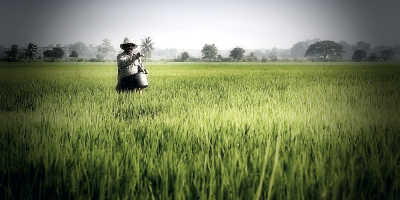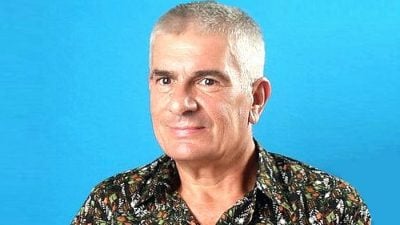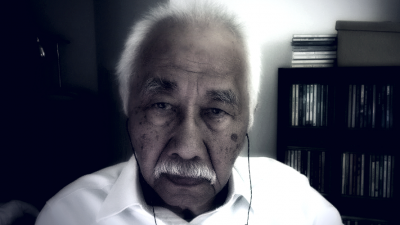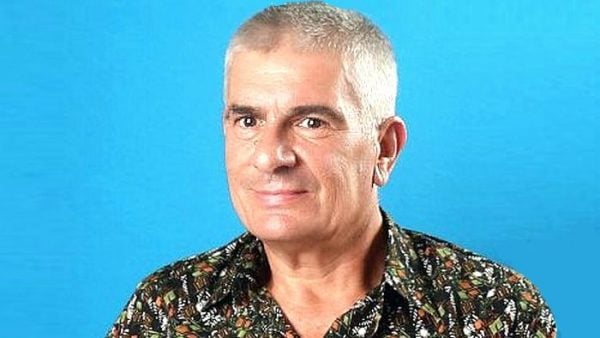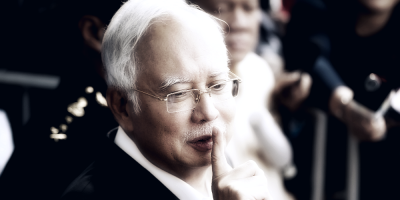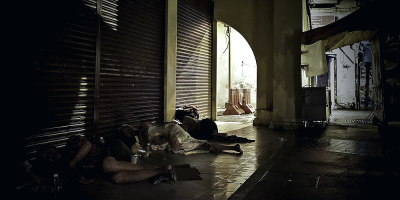A review of Malaysia Towards GE15 and Beyond by Murray Hunter and Lim Teck Ghee (SIRD, 2022)
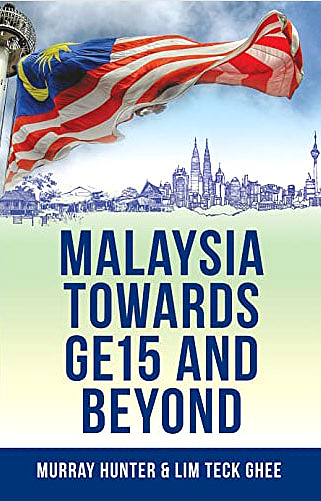
Introduction and theme
The title of this review perhaps sums up my thoughts on the direction Malaysian politics is taking, having been a keen observer and commentator of it.
I will briefly touch on the main thesis of the book, especially from the essays written collaboratively, and those that capture the theme of the book in general.
The driving question is: as we approach the next general elections as a ritual in a hypermodern and flawed Asian-styled democracy, is there light at the end of the tunnel, or is it still a New York A-train approaching for a head-on collision with Malaysians already in despair?
The central theme of the book is one of hope in face of the complexities of Malaysia as a multicultural polity.
The last essay, a collaborative one, seems to be the best in offering such a hope grounded in realism and in describing what actually is happening on the ground, and what voters need to know before they chose who to represent them, as servants of the masses first and foremost.
Through the essays, one could understand clearly the strength, weaknesses, opportunities and threats in the socio-political-economic of Malaysian politics.
On the deep state, Covid-19, and hope
In the first section of the collection, the authors independently assessed the state of Malaysian politics entire.
The common theme in this section is about how Malaysian democracy works, as we must first understand how the “deep state” operates.
The neo-feudalist ideology dominates Malaysian politics with the “Ketuanan Melayu” (“Malay dominance”) framed and deployed as superstructure, using a Marxist term to signify foundational ideas governing a modern state.
Enlightening it is to read Murray Hunter’s expose’ of issues in Malaysian politics. He scrutinized the deep Malay-Islamic state, lament the fate of Sabah and Sarawak, question the “bodek culture” (the political buttering and greasing for favors) of essentially Malay politicians, questioned who Anwar Ibrahim really is, and asked us to think of a “third force” in Malaysian politics.
The essays in the first section by Lim Teck Ghee, are a tribute to DAP’s “political stalwart” as many would call Lim Kit Siang.
Teck Ghee writes about Kit Siang’s selfless contributions and why the DAP is still in business.
Four essays are devoted to the work of the seasoned politician and the strong-willed party, the DAP.
As in reading Murray Hunter’s essays to get to the theme of deconstructionism and the Malay-Muslim deep state and the constellation of issues surrounding Malaysia as a failing polity, one must read closely Lim Teck Ghee’s tribute essays to understand first-hand what “democratic action” entails and why most of the analyses by the enemies of DAP can be considered faulty.
The second section is an exciting read. It addresses how Malaysians confront the global pandemic of Covid-19.
Because the essays were written as the pandemic was progressing, the authors provided an ethnographic commentary on how the country deals with the issue.
From Teck Ghee’s caution that we must not criminalize China for the alleged Wuhan origin of the global pandemic, as how the issue of Uyghur Muslims of Xinjiang is misrepresented, to Murray Hunter’s excellent thoughts on how lockdowns are politicized and used by the government to police and put the citizens under unnecessary surveillance, this section gives readers a contemporary socio-political and problem-managing feel of a nation dealing with a “black swan event” exposing the level of preparedness of crisis management of such proportion.
Each essay is in this section a gem that must be read closely to understand how we view a world in crisis.
But what will hope look like?
In the third section, two essays conclude this volume with a word we love most about political change: hope.
In the Introduction, we read:
“ … Ours is the hope or aspiration of what is needed to take on the dark forces and to spark Malaysians towards real change. We hope that the afterword offers some optimism to Malaysia’s politics in the spirit that some of the new political groupings are trying to put across today. A new vision, a new mission based upon equality, secularism, and consensus, where people are not divided or manipulated by race or religion or other concocted cleavages can unshackle the nation’s youth for the long journey to the Malaysia that they deserve. …”
These are fine words of encouragement to readers in tune with what the essays throughout proposed. Hope for a new coalition, cleaner blood in the old parties, a “third force”, that there will be no buying off of politicians, and a new beginning of something — the authors had these in mind.
Hope is an elusive word, though in this section the authors made it sound clear and readily achievable.
The Finest Passage
A powerful quote from the “Addendum” is worth mentioning:
“ … What really needs to be prioritized in advancing Malaysia’s actual place within the region and world today, and what Malaysia might want to tout internationally is the nation’s achievements based on merit, capacity to compete and technological advancement. This will require putting aside the baggage of race and religion which has acted as a drag—see our loss of human talent and the brain drain since the NEP— and reforming national policies on education, agriculture, industry, innovation, and equity to prepare for the real challenges of tomorrow. Malaysia, if it is going to take up the challenges of today and tomorrow, at both regional and international levels must radically change its perspectives and policies to be race, religion and class blind while drawing on the best from all Malaysians. …” (Addendum, pgs. 156-157)
Powerful ideas of hope are in this passage. An ideal that can be translated into political action, should the level of socio-political consciousness of the people is raised through a very responsive and cognitive-ethically-enhanced system of education.
Conclusion
I end this review with the feeling the authors have not only provided a statement of hope, in a world of Malaysian political despair, in which things have fallen apart, and the center cannot hold but also suggested a way we can think of and act upon, as we collectively resist the onslaught of the yet other gangs of political parties that will orchestrate attempts to take over the state, come General Elections-15.
A glimmer of hope is provided in that a “third force” needs to be put on the theater of the absurd of Malaysian politics.
But will this remain a hope? Or is this still the beginning of a shift in voter-consciousness the effect of that changes now trumpeted as “a new vision for Malaysia”?
Murray Hunter and Lim Teck Ghee’s Malaysia Towards GE15 and Beyond is a must-read by anyone interested in seeing the change that they wish to see for their children, especially.
(Azly Rahman is an author of ten books on Malaysia and Global Affairs, an international columnist, and a global educator. He teaches courses in Cultural Perspectives, Global Issues, Cultural Studies, Cognitive Psychology, and Sociology of the Future. He writes at Across Genres.)
ADVERTISEMENT
ADVERTISEMENT






